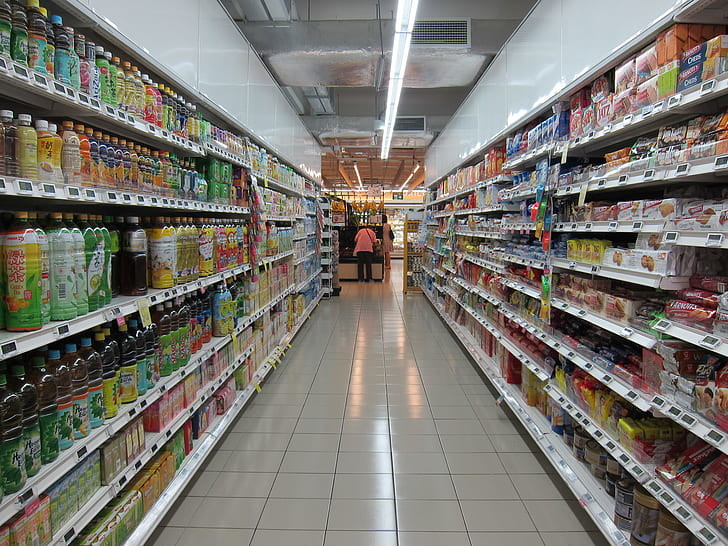Maltese supermarket tips!
Supermarket Sweep!
Upon arriving in Malta, I learnt that finding a really good supermarket would not actually be too difficult!
Located near my house is a Smart supermarket. A brand that I had never really heard of until now. It reminds me of ASDA, as it has a lot of different departments and their stores are typically pretty big and spacious.
The one thing I found however, was that Smart is very expensive for what it offers. Although you may think that the lovely ‘sale’ signs are showing you great offers on products and produce, these are actually very misleading and can actually mean that you are paying much more for items than you would do back home.
I am assuming that the larger price tags are something to do with Malta having a lot of their produce imported, raising a higher tax bracket on such items that you would typically find to be a lot cheaper back at home.
I remember having to scour the cleaning section in order to find washing up liquid that wasn’t going to cost as much as a meal from McDonald’s.
My first shopping trip consisted of;
Apples x6
Bananas x5
Grapes x1 (punnet)
Lettuce x1
Peppers x4
Milk Carton x1
Bottled Water x6
Biscuits x2 (packs)
Tortilla Wraps x1 (pack)
Croissants x6 (pack)
Cereal x750g
Pasta x500g
Tomato Pasta Sauce x500g
Chicken Nuggets x1kg
Mayonnaise x500ml
Breaded Fish x500g
Toilet Roll x12 (rolls)
Kitchen Roll x2 (rolls)
Washing up Liquid x1 (500ml)
Washing detergent x1L
Fabric Softener x500ml
This small shop amounted to €44, which would normally cost me a lot less back home.
I tried to find the cheapest prices for these items, but not really knowing what to expect from my first Maltese supermarket experience I also had to be somewhat lenient.

However, there are some tips that can ensure that you are not overspending on a weekly shop, which will in turn help you to save money during your time abroad.
-
Sharing is caring. If you can share between your house mates, then do so. As long as you share everything equally, then I would highly recommend doing so. Establishing certain things that can be divided such as; Washing / Cleaning products, Milk, Water, Cheese, Butter etc. The list could go on. The way that we divided such costs in our house, was to ensure that someone different was buying the items we needed. Therefore, we would rotate a weekly schedule on what products needed purchasing and who had purchased them the previous week.
-
Always check the price per 100 grams. I cannot stress the importance of this enough. Especially when it comes to purchasing an item / items that fall under an offer of for example; Buy One Get One Free. Although this may seem very appealing, it is always recommended to look at what the cost of the product will be per 100 grams, as you may be able to find cheaper alternatives that do not form part of the offer – but could mean that a multiple purchase of such items are cheaper than the BOGOF offer. My mum taught me this trick when I used to go shopping with her and although it means looking at labels for quite some time, it can actually save you a lot of money in the long run.
-
Look at the expiration date. One of the quickest ways that people often lose money when food shopping, is purchasing items that have an expiration date that is quickly looming. It is vital to scour through the trays of fresh produce and find the items that have the latest expiration date possible. Supermarkets always put the items about to expire soonest, at the top of the piles, therefore you might find that some items hidden underneath actually will last you a lot longer than some others. If you are purchasing food that is due to run out of date, then you will have to replenish this a lot more often than you realise. Meaning more trips to the supermarket, which means more and more money you are spending.
-
Take advantage of your freezer. The freezer is one of the best mechanisms for saving money as you can keep your fresh produce for a longer period of time. I always see what products on my food shop can be put into the freezer, for me to then use at a later date. For example; as I am cooking for one person the majority of the time, I would never normally use a full tray of minced beef (500g). So, I would either use half of the tray in my cooking and freeze the rest. Or, I would cook in bulk and use all the minced beef and freeze half of the meal I had made, which I could defrost at a later date. Another thing that many people may not know can be frozen, is bread. Bread slices can be stored in the freezer (if you are a party of one like myself) which means that the product will last a lot longer and means a lot less wastage. Just take the slices out a couple of hours before you want to use the bread and it still tastes exactly the same. Granted there are some time implications of freezing your items, but in the long run, you will find that you are saving a lot of money.
Photo gallery
Want to have your own Erasmus blog?
If you are experiencing living abroad, you're an avid traveller or want to promote the city where you live... create your own blog and share your adventures!
I want to create my Erasmus blog! →




Comments (0 comments)